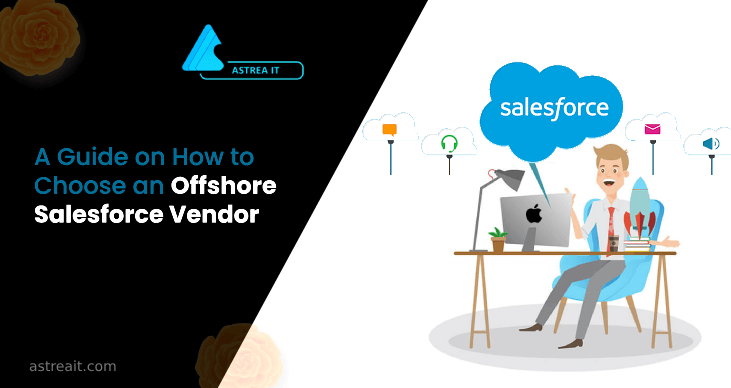Introduction:
In today's ever-evolving business landscape, adopting and optimizing Salesforce has become a strategic imperative for organizations aiming to streamline operations, enhance customer relationships, and boost overall efficiency. While the benefits of leveraging Salesforce are clear, choosing the right offshore vendor to implement and manage the platform is a crucial decision. In this blog, we will explore the key factors to consider when selecting an offshore Salesforce vendor to ensure a successful and seamless integration.

Table of Contents
- Assess Your Needs:
- Vendor Expertise and Experience:
- Certifications and Credentials:
- Data Security and Compliance:
- Communication and Collaboration:
- Scalability and Flexibility:
- Cost Transparency and Value for Money:
- Support and Maintenance:
1. Assess Your Needs:
Before embarking on the journey to find the perfect offshore Salesforce vendor, it's crucial to assess your organization's specific needs and objectives. Clearly define your requirements, understand the scope of the project, and identify the key functionalities and features that are essential for your business processes.
2. Vendor Expertise and Experience:
Evaluate the expertise and experience of potential offshore vendors. A reliable Salesforce vendor should have a proven track record of successful implementations, a team of certified Salesforce professionals, and a deep understanding of your industry. Look for case studies, client testimonials, and reviews to gauge their proficiency in delivering quality solutions.
3. Certifications and Credentials:
Salesforce offers various certifications that validate the skills and knowledge of professionals in different aspects of the platform. Ensure that the offshore vendor's team is certified and up-to-date with the latest Salesforce developments. Certifications such as Salesforce Certified Administrators, Developers, and Consultants are indicative of a vendor's commitment to excellence.
4. Data Security and Compliance:
Salesforce handles sensitive business data, making data security and compliance paramount. Verify that the offshore vendor adheres to industry best practices and complies with data protection regulations such as GDPR, HIPAA, or any other relevant standards based on your business location and industry.
5. Communication and Collaboration:
Effective communication is a cornerstone of successful offshore partnerships. Assess the vendor's communication channels, response times, and language proficiency. Opt for a vendor that fosters transparent communication, collaborative problem-solving, and a proactive approach to addressing issues.
6. Scalability and Flexibility:
Your business needs may evolve over time, requiring your Salesforce implementation to scale accordingly. Choose an offshore vendor that offers scalable solutions and possesses the flexibility to accommodate future changes and enhancements without significant disruptions.
7. Cost Transparency and Value for Money:
While cost is a crucial factor, it's equally important to prioritize value for money. Seek a vendor that provides transparent pricing models, detailed project estimates, and a clear breakdown of costs. Consider the long-term value the vendor brings to your organization rather than focusing solely on initial expenses.
8. Support and Maintenance:
The journey with Salesforce doesn't end with implementation. Ensure that the offshore vendor provides robust post-implementation support and maintenance services. This includes regular updates, troubleshooting, and assistance with any issues that may arise.
Conclusion
Choosing the right offshore Salesforce vendor is a pivotal step in maximizing the potential of the platform for your business. By carefully evaluating expertise, certifications, security measures, communication, scalability, and support services, you can make an informed decision that aligns with your organization's goals. Remember, a successful partnership with an offshore vendor can unlock new possibilities, streamline processes, and propel your business to new heights in the digital era.
For any queries please reach out to support@astreait.com